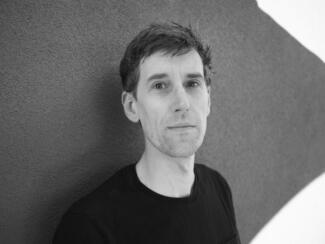1912 Fire, ash, and regrowth
Before Combustion
By Nicholas Bradley
Kentville: Gaspereau Press, 2023
$23.95 / 9871554472543
Reviewed by Marguerite Pigeon
*
 The title of Nicholas Bradley’s new book, Before Combustion, is drawn from a line in his poem, “Self-portrait in Lycra Skinsuit,” where the poet considers a schism in his cyclist persona. There’s the familiar self who, enveloped in a second skin, races a high-tech bike:
The title of Nicholas Bradley’s new book, Before Combustion, is drawn from a line in his poem, “Self-portrait in Lycra Skinsuit,” where the poet considers a schism in his cyclist persona. There’s the familiar self who, enveloped in a second skin, races a high-tech bike:
Last century’s chemistry dresses me
in Day-Glo from prescription sunglasses
to baby toes.
Sharing space, however, is Bradley’s latest self: the father and breadwinner who “virtuously” takes a safer “clunker” to the market.
On the surface, the portrait sketches a midlife crisis. But Bradley’s dis-ease serves as a jumping-off point in Before Combustion to explore more universal concerns, including masculine entry into domestic life, reorientation of a poet’s gaze, and longing and anxiety for the natural world. “Self-portrait” ends in a confession:
Although I’m ready
for life on Mars, some part of me pines
for horses, the world before combustion.
A note of regret, then, over combustion’s byproducts, especially climate-altering emissions. Anxiety, too, over the metaphorical combustion of time: youth, idealism, and ego becoming middle age, hybridity, and doubt. Far from the easy evasions of a clichéd crisis, Bradley’s honest self-account lets him take seriously time’s rapid burn.

Another poem, “Before English,” echoes the concern with ‘before’ and ‘after.’ In it, Bradley explores a longing for the pre-linguistic state of babyhood, in which thinking is tactile. Unlike the parent trapped in the workings of language and existential dread (like all poets), the baby’s embodied experience is mysterious, ascendant—
With your finchlike
hand almost frictionless
in my rough parenthesis,
we shared a lexicon
of touch, the moment gone
as soon as you slipped
your articulate
fingers from mine
Bradley’s first book, Rain Shadow, introduced readers to an adventurer-poet who scaled mountains, crashed his bike, and painstakingly sought the right words—or the correct silences—to capture the sublime West Coast’s mountainous geography, which he compared to the work of the gods. This was poetry by someone tethered only by their safety gear, a sense of responsibility to land and language, and a wish for mastery. From that book’s poem, “First, Failure”:
I wanted words so dense
that no light could escape,
so powerful their gravity
that sound would be consumed.
Bradley wrote self-consciously about this hope (note the poem’s title), and Rain Shadow luxuriated in the uncertainties of one’s place on such awe-inspiring land. But in Before Combustion, mastery doesn’t even make the poet’s agenda.
The latest book’s opening poem, “Bad Trip,” unfolds like a fireside story about an encounter while camping in Washington State—first with a scary survivalist, then a bear:
Three more steps and we
could have touched the bear’s
flank, seen what it smelled
as it nosed toward
the sunless bank. If he’d
been polite, we could
have shaken hands. We had
half an hour of light
and no ideas. This
was no picnic, no
waltz, no circus.
Seemingly about frightening near-misses, the poem aches with nostalgia for the frayed edges of youthful risk-taking. But it ends with the admission that the poet never returned to complete this trip. Too drawn, the reader surmises, into the world of picnics and circuses—a domesticity as frightening as a wild animal for what it represents about altered masculinity, time’s march. Several poems find the poet working (as a poetry instructor), folding laundry, tending to the needs of a newborn, even fending off tiny intruders. From “Night Watch”:
In mid-life
my principal
tasks are to kill
spiders on sight
to quash winter
moths without
marking the paint
Gone is the backcountry, replaced by a clearly demarcated world of the family home and yard, where just hints of geological time appear. From “In the Beginning,” addressed to the new baby:
Soon
you will greet
the oaks behind
our house that live
five hundred years,
the outcropped gneiss
on the hill
up the street
Such are, for now, Bradley’s own parameters. Yet within them, the poet’s voice is elegant, sonorous. Formally, the poems in Before Combustion read like careful machines for synthesizing change. Often rhymed and economical, frequently presented in narrow couplets or tercets, they feel architectural, like tiny houses built on strong poetic foundations, as many allude to other poets who’ve considered issues of land, meaning, and existence.
“Being on Fire” alludes to Wallace Stevens’ poem, “Of Mere Being,” as it struggles with apathy, dwindling hope, and existential dread in the face of drought and forest fire risk. Bradley narrates his limited view of land and water through a window, which might stand in for the constraints of family life, but also for Plato’s cave, in which all humans mistake shadow play for reality.
Bradley seems to suggest that no one can fully grasp the horror of climate change. Yet he feels it to the core:
Should firedrakes in blazing set fever skies
alight, no watchers would notice. Dull
portents escape us. Everything has soured,
passed out of humour. Trust me. My belly
is full of glass, my eyes are rubbed with sand,
and I have been left in the kiln to burn.
The poem also evokes the image of a phoenix, for which Bradley claims to have “no words.” Not quite true, as a wish for rebirth edges Bradley’s consciousness throughout the book. In “Clouds Taken from Mountains,” a plane trip away from a young child brings awareness of jet-engine pollution, but also of responsibility to another generation:
my purpose now
to learn to leave
and reappear without
disquiet or heartbreak
If heartbreak and age lurk like hungry bears through Before Combustion, so does a commitment to a poetic tradition of reaching for what is beyond our grasp. The figure of the child anchors a hope that change might move not just towards fire and ash, but regrowth.
*
 Marguerite Pigeon writes poetry, fiction and reviews. Her latest publication, a book-length poem called The Endless Garment (Wolsak & Wynn) was named to The Globe and Mail’s Top 100 books list for 2021. Originally from Northern Ontario, she lives in Vancouver, where she runs a small editing and writing business, Carrier Communications. [Editor’s note: Marguerite Pigeon’s The Endless Garment is reviewed here by Heidi Greco. Pigeon recently reviewed poetry by Cecily Nicholson and Arleen Paré in BCR.]
Marguerite Pigeon writes poetry, fiction and reviews. Her latest publication, a book-length poem called The Endless Garment (Wolsak & Wynn) was named to The Globe and Mail’s Top 100 books list for 2021. Originally from Northern Ontario, she lives in Vancouver, where she runs a small editing and writing business, Carrier Communications. [Editor’s note: Marguerite Pigeon’s The Endless Garment is reviewed here by Heidi Greco. Pigeon recently reviewed poetry by Cecily Nicholson and Arleen Paré in BCR.]
*
The British Columbia Review
Interim Editors, 2023-24: Trevor Marc Hughes (non-fiction), Brett Josef Grubisic (fiction)
Publisher: Richard Mackie
Formerly The Ormsby Review, The British Columbia Review is an on-line book review and journal service for BC writers and readers. The Advisory Board now consists of Jean Barman, Wade Davis, Robin Fisher, Barry Gough, Hugh Johnston, Kathy Mezei, Patricia Roy, Maria Tippett, and Graeme Wynn. Provincial Government Patron (since September 2018): Creative BC. Honorary Patron: Yosef Wosk. Scholarly Patron: SFU Graduate Liberal Studies. The British Columbia Review was founded in 2016 by Richard Mackie and Alan Twigg.
“Only connect.” – E.M. Forster
3 comments on “1912 Fire, ash, and regrowth”